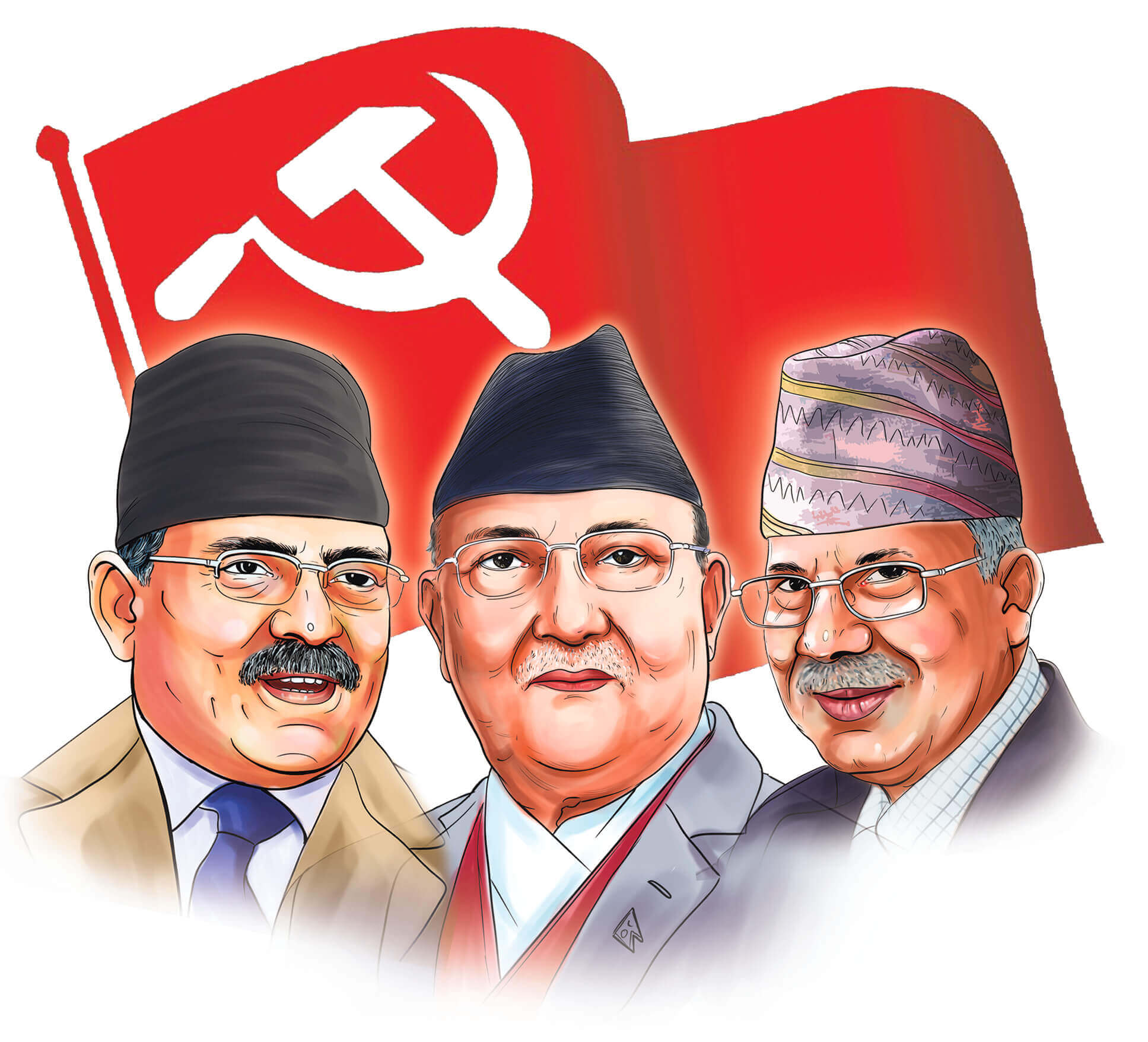The Troika

After a prolonged tug-o-war that polarised the ruling Nepal Communist Party (NCP) to the point where it looked like it was headed for a split, a three-way truce this week has defused the crisis for now.
Prime Minister KP Oli is co-chair of the NCP with Pushpa Kamal Dahal, and relations between the two had soured over Dahal’s suspicion that Oli was not going to stick to their 2017 ‘gentlemen’s agreement’ in which they decided to take turns being prime minister for 2½ years each. While Oli was in Delhi for Narendra Modi’s swearing-in last month, Dahal even leaked a memo that proved the pact was in writing.
The third leader in the Communist Troika is former Prime Minister Madhav Kumar Nepal, who has also been critical of Oli’s desire to go it alone, both within the party and in government. He even sang a line from a popular Nepali folk song while Oli was in New York earlier this year, which likened the PM to playing the fiddle while the country burned. Nepal has publicly sided with Dahal since both felt sidelined by Oli, and gained influence by using the swing vote of his loyalists to play kingmaker in the party.
Read also: The business of politics undermines Nepal’s democracy, Ramesh Kumar
With the government and party paralysed by the equal numerical strength of members loyal to the three leaders, something had to give. It appears that the combined strength of Dahal and Nepal convinced Oli that he had to compromise on appointments to the central committee, politburo and party department heads, as well as chiefs of fraternal organisations.
The first indication of this was a breakthrough this week on dividing up the functions of the 441 members for district in-charge and party structure at the local level. Inability to do so had kept the party’s decision-making centralised in Kathmandu, thus undermining true devolution.
What complicates matters is that many of the 441 central committee and 147 politburo members are also elected representatives in all three levels of government. Also, the 60:40 formula between former UML and former Maoist members would not reflect loyalties to the Troika.
Still, it looks like good sense has prevailed, and Oli has assured former UML dissidents that he will do more listening henceforth. Oli’s detractors are also putting pressure on him to relinquish either the prime ministership or party chairmanship under the one-post-one-person rule that they have demanded.
There are still some much-delayed formalities to conclude before the NCP can be considered truly united. After that happens, Oli is expected to reshuffle his cabinet to address some of the widespread criticism of his government’s non-performance.
For many analysts, the Communist Troika is behaving no differently than the Nepali Congress’ own tripartite leadership under GP Koirala, KP Bhattarai and Ganesh Man Singh after the 1990 People’s Movement.
Read also: The co-pilot's flight plan




